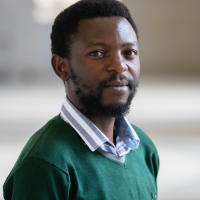China’s Soft Power Projection in Africa
China’s resource extraction and infrastructure lending programs in Africa are coordinated with a well-resourced effort to build Beijing’s soft power on the continent. China’s educational and media outreach programs have expanded significantly over the years. Thus far they have had mixed results. They are welcomed in some nations and looked upon warily in others. Even Africans who are enticed by Chinese offerings do not necessarily change their perceptions of the PRC.
This event examined one of the largest PR campaigns in history, its role in great power competition, and the views of Africans who are often overlooked in discussions of soft power.
Selected Quotes
Maria Repnikova
“The Chinese government has invested heavily in overturning these narratives. China is now the number 1 training destination for African elites, including journalists—about a thousand of them get trained in China every year. It hosts the largest number of African students in the world, estimated at 80,000 a year—the U.S. in comparison hosts about 40,000 a year, so half of that number. China has launched 62 Confucius institutes teaching Chinese language and culture on the continent, Chinese state-owned media has opened headquarters in Nairobi that distribute content to many other countries.”
“When it comes to Africa, the Chinese authorities have made a deliberate effort to emphasize the moral vision vis-a-vis the continent instead of mutuality, win-win, and generosity as the underlying foundation of China’s soft power. In material terms, this means extensive resources invested into communicating with and creating new bonds of affinity with African publics, especially elites […] In the context of Ethiopia, I find that in contrast to the U.S. approach that emphasizes abstract values and ideals of liberal democracy, but commits limited investments into educational and cultural programs, Chinese cultural, educational and media programs focus on access or as presenting China as a real and tangible opportunity.”
“The straightforward access to Chinese soft power offerings, especially educational opportunities is often contrasted with a more obscure—and what is perceived as exclusive access to opportunities in the United States. During interviews and group discussions, the application process to either the YALI fellowship, the flagship U.S. government fellowship for young African leaders, or prestigious U.S. journalism fellowships would often come up. After skimming through the requirements, including fluency in English language, a personal essay, and a list of prior accomplishments, many would quickly give up, conditioned by the ease of China access, my Ethiopian interlocutors were often disappointed with what they refer to as the closed door of the United States.”
Emmanuel Matambo
“In countries like Zambia for example, China […] has embarked on a venture called TopStar, a collaboration initiative with the Zambian National Broadcasting Corporation which is a state-owned enterprise in Zambia. China’s TopStar owns 60% of that venture, and the Zambian government owns only 40%. Now here’s an embarrassing fact—the Zambian government could not raise that 40% and China loaned the Zambian government that 40% through the China export-import bank, so the revenue as it stands right now is 100% Chinese.”
“China always seizes an opportunity to tell us Africans the importance that it puts on Africa, in contrast to what the Western media does—for example, CGTN, every day, a portion of the two hours of its reportage is focused on Africa. BBC, on the other hand, its focus on Africa I think is 30 minutes in a week.”
“China’s diplomacy, on the other hand, is cultural […] of saying, ‘we cannot really dictate the path that our partners chose to follow, could be a political path or an ideological path and stuff like that, so that is a major difference. To an African audience that appears as though China is more tolerant of alternative views whereas the United States is very rigid in its diplomacy and that has worked to win African minds.”
Speaker

Associate Professor, Department of Communication, Georgia State University
Moderators


Panelist

Research Director, Centre for Africa-China Studies, University of Johannesburg
Hosted By

Kissinger Institute on China and the United States
The Kissinger Institute works to ensure that China policy serves American long-term interests and is founded in understanding of historical and cultural factors in bilateral relations and in accurate assessment of the aspirations of China’s government and people. Read more


Africa Program
The Africa Program works to address the most critical issues facing Africa and US-Africa relations, build mutually beneficial US-Africa relations, and enhance knowledge and understanding about Africa in the United States. The Program achieves its mission through in-depth research and analyses, public discussion, working groups, and briefings that bring together policymakers, practitioners, and subject matter experts to analyze and offer practical options for tackling key challenges in Africa and in US-Africa relations. Read more
